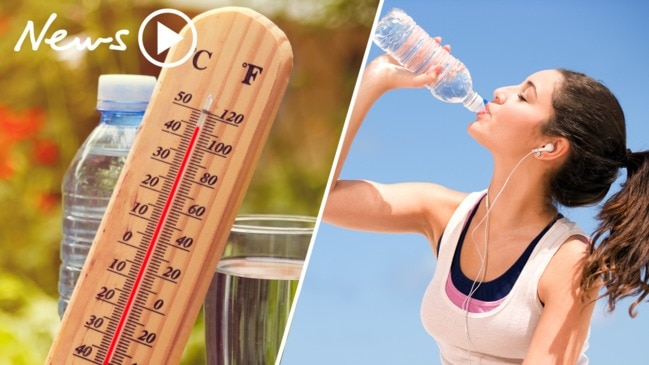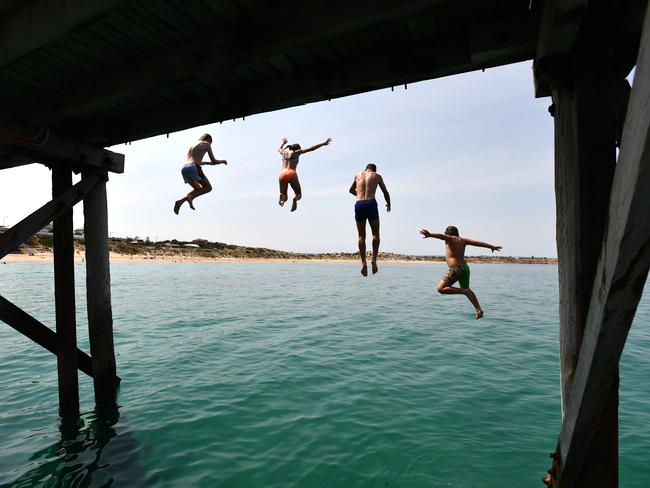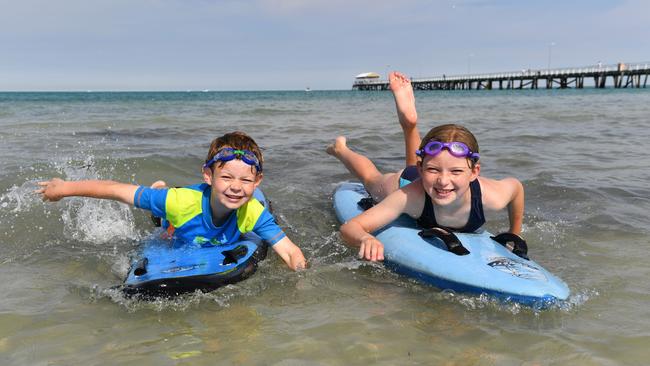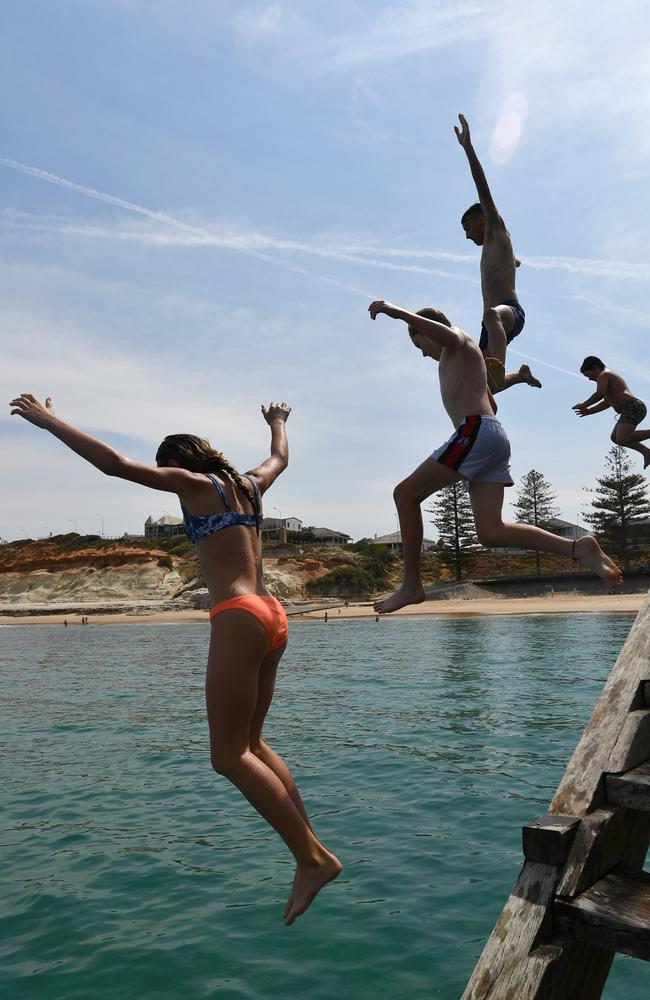SA Health bracing for increased hospital admissions and presentations as severe heatwave grips state
As a severe heatwave is declared for most of the state, SA Health has rostered on extra staff and freed up beds, bracing for a huge influx of people badly affected by the heat.

SA News
Don't miss out on the headlines from SA News. Followed categories will be added to My News.
Heatwaves are South Australia’s silent killer and are putting increasing pressure on the state’s hospital system, a public health expert says.
The warning comes as SA Health scrambles to put on more resources and free up hospital beds to cope with the severe heatwave descending on the state.
Figures obtained by The Advertiser show there were 354 hospital presentations as a result of three heatwaves in January, March and April this year. Of those, 121 patients were admitted to hospital for treatment.

Adelaide University Professor Peng Bi said heatwaves were increasing in length and severity.
He said his research showed that a high-intensity heatwave led to an increase of 15 per cent in ambulance call-outs in South Australia.
“As silent killers, heatwaves kills more people than any other natural disasters,” Prof Bi said.
After a sticky night, in which the temperature dropped to a low of just 28.6C about 6.30am this morning, today’s temperature is forecast to reach 42C in Adelaide. It will rise to 44C on Friday before plummeting to 25C on Saturday.
Prof Bi said his research showed hospital visits and heat-related deaths increased as “temperatures go beyond that which can be physiologically tolerated by vulnerable individuals”.
He said those most at risk included the elderly, infants, people with chronic diseases and outdoor workers.
“These health risks from climate change may be exacerbated by demographic, geographic and social changes, for example an ageing population with multiple morbidities, social inequalities and casualisation of the workforce,” he said.

SA Health acting chief public officer Dr Chris Lease said services across the state were working hard to limit the impact of extreme heat on South Australians.
He said strategies to cope with higher demand included having additional staff on standby, discharging “relevant patients” early in the day and providing free cold water in public areas.
“This work will continue into early next week as we anticipate further presentations from heat-related illnesses after the weather has changed,” Dr Lease said.
“The effects of a heatwave often last days after the heat has subsided, so we encourage everyone to continue to stay hydrated, stay cool, check on elderly family and friends, keep an eye on young children and be aware of the signs of heat-related illness.”
He said people who experienced symptoms of heat exhaustion – such as nausea, faintness and dizziness, loss of appetite, weakness, headaches, vomiting, sweating and reduced urine output – should seek medical attention.

The State Emergency Service yesterday declared a severe heatwave across the state except for the lower South-East, which is subject to a low-intensity heatwave.
The Eastern Eyre Peninsula will face an extreme heatwave over the coming days.
Bureau of Meteorology data shows that the average temperature across Australia has increased by more than 1C over the past five years.
Research by the Climate Council has linked increasing temperatures during summer to the severity and prevalence of heatwaves.
Prof Bi said that increasingly powerful and longer heatwaves would require a rethink on how cities and homes were designed.
He said that would need a joint effort from individuals, service providers and governments to help “build more climate-resilient communities”.
With temperatures soaring above 40C, Red Cross teams have been out across the state providing heatwave safety packs to the homeless and those sleeping rough.
The packs contain a reusable water bottle, insect repellent, hat, sunscreen and a basic first-aid kit.
Alana Pedler, manager of the Red Cross Escape the Elements program, said the packs were “simple but effective”.
“We developed these resources in collaboration with those who sleep rough, drawing on their unique knowledge and experience,” she said.
Red Cross SA’s emergency services manager Jai O’Toole said more Australians had died as a result of heatwaves than through all other natural disasters including floods, bushfires and cyclones.

